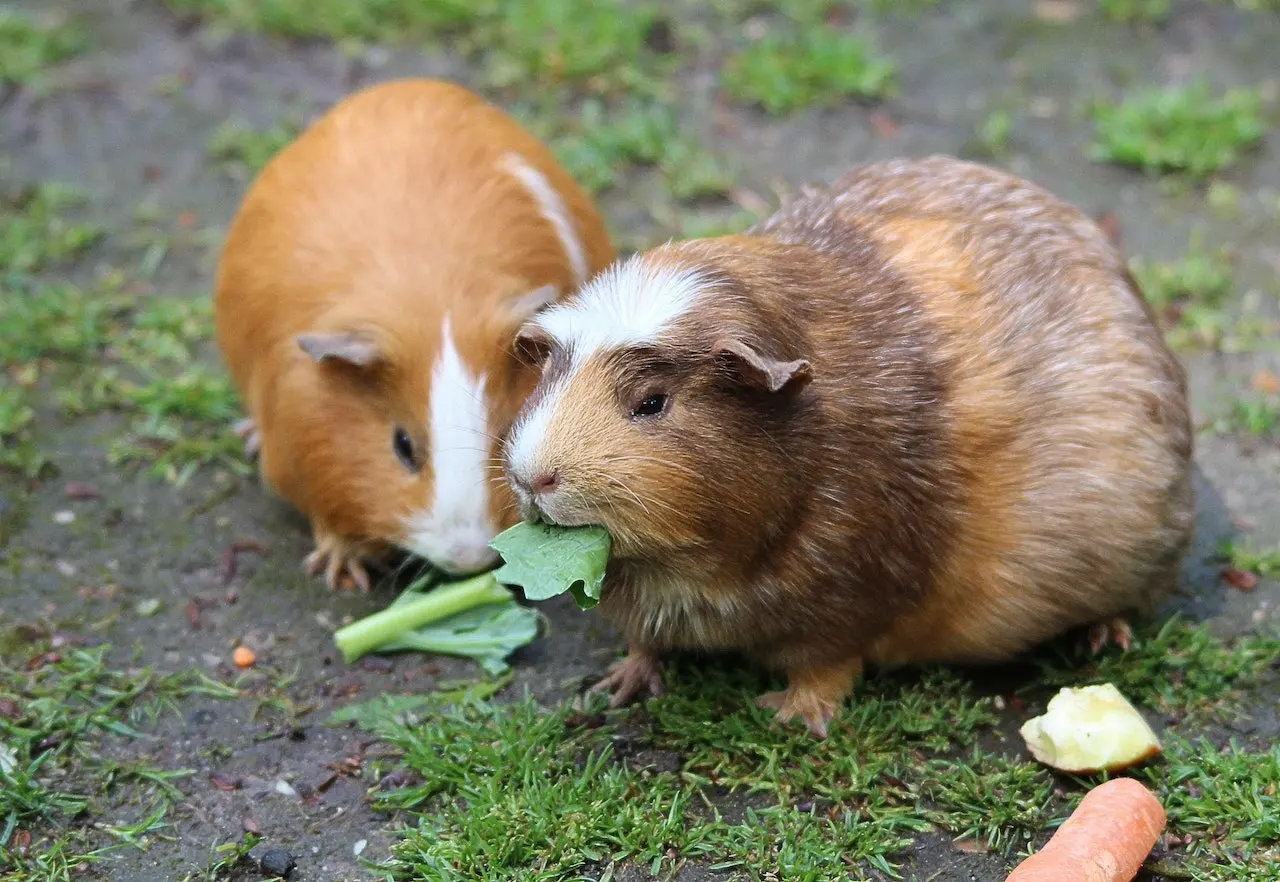Guinea pigs make wonderful pets for many reasons – they’re cuddly, entertaining, and easy to care for. But during their pregnancy and birthing process, guinea pigs need special attention to ensure healthy babies and a safe delivery. So for guinea pig owners, understanding how long a guinea pig pregnancy lasts helps ensure both mother and babies stay healthy and safe.
The Biology of Guinea Pig Reproduction
Like all living beings, the cycle of life begins with reproduction for guinea pigs. Guinea pigs reach sexual maturity around 4 to 6 months of age, when females become receptive to breeding during their estrus cycles. Females go into heat, or estrus, every 16 days for about 2 to 3 days.
How Long Does Gestation Take?
The normal gestation length is between 59 to 72 days, resulting in litters of 1 to 5 hairless and blind newborn pups. The pups weigh around 80 to 100 grams at birth and are fully weaned and eating solid foods by 4 to 6 weeks of age.
Factors That Can Influence A Guinea Pig’s Pregnancy
Many factors can impact whether a guinea pig sow has a successful and healthy pregnancy that results in a thriving litter. They are as follows:
- Age: Guinea pigs under 6 months or over 4 years old are not recommended to get pregnant due to risks.
- Nutrition: Undernourished or overweight sows may have complications during pregnancy. A diet high in vitamin C, fiber and protein is important.
- Stress: High stress levels can negatively impact the pregnancy by causing complications or premature birth. Ensuring a calm environment is key.
- Past pregnancies: The number of previous pregnancies may impact the current litter size and health of the sow and pups. Older sows tend to have smaller or sicker litters.
- Genetics: Certain genetic abnormalities can be passed on that impact pup health and survival. Selecting suitable breeding pairs is paramount.
- Environment: The temperature, humidity, ventilation and space available can all influence whether the sow can successfully carry and deliver her pups. An optimal cage set up is needed.
How To Make The Pregnancy Easier For Your Guinea Pig
From providing a nutrient-rich diet, and ensuring ample water supply, to creating a cozy, clean abode, there are certain ways you can make this process easier for your guinea pig. They are as follows:
- Start with a healthy sow: Ensure the sow is at least 6 months old, properly nourished, dewormed and free from injuries or illnesses before breeding.
- Provide a high quality diet: Feed the sow a diet high in fiber, vitamin C and protein throughout pregnancy and lactation. Feeding small frequent meals can help meet the increased nutritional demands.
- Minimize stress: Keep cagemates together and minimize disturbances and noise to reduce stress. Provide secure hiding places and nesting materials for the pregnant sow.
- Monitor weight and body condition: Weigh the sow regularly and keep her at a perfect size during pregnancy. Being underweight or overweight can lead to complications.
- Maintain optimal environment: Keep the cage and surrounding area clean and warm. Check temperature, humidity and ventilation are within the ideal range for pregnant guinea pigs.
- Watch for signs of issues: Monitor the sow for symptoms like loss of appetite, lethargy, discharge or behavioral changes that indicate illness or other problems. Seek immediate veterinary care if needed.
- Prepare for the arrival: Stock up on critical supplies like vitamin C drops, paper towels, hay, nursery cages and appropriate guinea pig food for the pups.
- Spay after weaning: Consider spaying the sow after weaning the litter to avoid back-to-back pregnancies which can be risky for her health.
Summary
Prioritizing the well-being and health of your pregnant guinea pig will ensure they deliver healthy litters.This rewarding experience of nurturing life is one of the most fulfilling aspects of pet ownership.
By monitoring them closely and providing ample care, you not only make the journey easier for your precious pet but also get to enjoy the joy of welcoming new, adorable members to the family.
